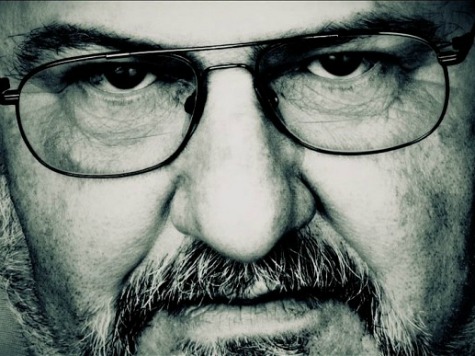
Hollywood tolerated John Milius until he did the unacceptable. He made a pro-U.S., pro-gun action movie attacking the USSR during the height of the Cold War.
That crossed a line for the writer/director responsible for some of the most memorable films from his era, including Apocalypse Now, Dirty Harry and, of course, Red Dawn.
The new EPIX documentary Milius, which debuts at 8 pm. EST Jan. 11, chronicles the rise, fall and final chapter of an auteur who paid a price for rebelling against the industry’s liberal mindset.
The film corrals an impressive array of sources, including Milius pals like George Lucas, Steven Spielberg and Francis Ford Coppola, to weave its compelling yarn. Using both new and archived interviews, the movie details how Milius once stood proudly alongside those screen giants. It wasn’t enough to stop him from becoming a pariah for his views.
The tall, husky Milius was larger than life in an industry where the term rings often hollow, a raw storyteller whose talents forced Hollywood to take him seriously. His cartoonish persona, one he gleefully fed with tall tales aplenty, couldn’t hide the avuncular artist adored by his contemporaries.
His pen gave Clint Eastwood arguably his most famous fine, “Go ahead, make my day,” in Sudden Impact, and he helped create the iconic war epic Apocalypse Now. His legendary script doctoring put grand speeches in the mouths of Robert Shaw (Jaws) and Sean Connery (The Hunt for Red October).
Milius was as hot as the proverbial pistol in the industry in the late 1970s and early ’80s, and even a commercial misstep like Big Wednesday couldn’t cool his pen or power.Then he directed a tale of middle American teens who battle against Soviet forces, and Hollywood suddenly mistrusted his talents.
Red Dawn’s unabashed patriotism and appetite for violence cast him out of polite Hollywood circles. His career never truly recovered, an issue explored in the documentary.
Dawn made a bundle, but that didn’t matter since its values clashed with the minds who mattered–film critics and fellow Hollywood players alike. One industry source says, “that movie, more than anything, made him a pariah for a long time. You just didn’t want to be around this guy. His politics were just too out there.”
Milius directly addresses the GOP elephant in the room. Directors Zak Knutson and Joey Figueroa deserve credit for bringing up the issue. Do conservatives suffer as a result of their belief system in Hollywood? Milius’s career seems like a bold “yes,” and Sylvester Stallone suggests it’s the case, too.
“If you’re outspoken like John, it can backfire on you,” the erstwhile Rambo says.
“In this town, they don’t think like John thinks. Today less than ever,” veteran character actor Sam Elliott says.
The rest of the interview subjects, even right-leaning stars like Clint Eastwood and Arnold Schwarzenegger, protect the industry from such charges. They contend Milius’ NRA-approved views had nothing to do with his career descent. The facts, including his meager film output since Dawn, suggest otherwise.
Was Milius placing a gun on the table during a critical business meeting, part of his carefully crafted shtick, worth a career shunning? The documentary take pains to show that Milius was, and is, a veritable teddy bear with a wealth of industry friends who can’t stop saying glowing things about him. None of that was enough to stop his free fall, and the biggest question left unsaid may be why all his powerful pals stayed silent when the industry slammed the door on his career.
Milius is a potent reminder of a singular talent and how Hollywood treats those who don’t follow the industry’s partisan playbook with their art.

COMMENTS
Please let us know if you're having issues with commenting.